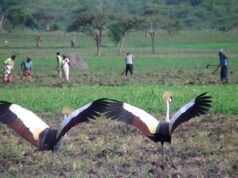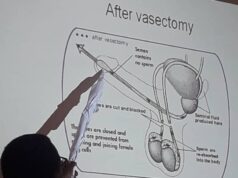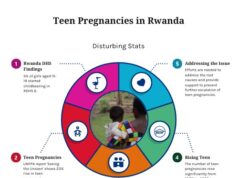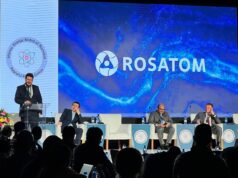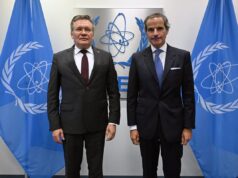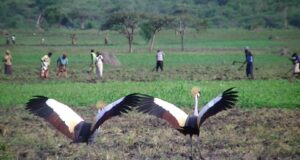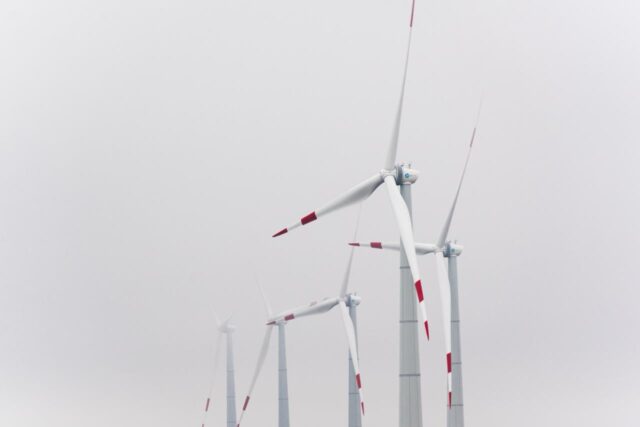
The second stage of Rosatom’s Trunovskaya wind power plant in Stavropolsky Krai, with an installed capacity of 35 MW, began supplying energy to the Unified All-Russian Power Grid. In total, the Trunovskaya WPP has an installed capacity of 95 MW and consists of 38 wind turbines.
“The Trunovskaya wind power plant is Rosatom’s ninth wind farm. With the commissioning of the power plant, the total installed capacity of the projects implemented by our company exceeded 1 GW. To date, Rosatom is the only one to possess a localized megawatt-class turbine in Russia and consistently implements the strategy of technological sovereignty, adhering to the principles of sustainable development of territories and environmental well-being of Russia,” said Grigory Nazarov, the Director General of Wind Energy Division of Rosatom.
“Stavropolsky Krai is consistently increasing the capacity of green energy. This is of fundamental importance for preserving the environment and the unique nature of the region. We are also building up our competencies in industry and high-tech production, which certainly gives the region a head start in the promising direction. Thanks to many years of cooperation with Rosatom, Stavropolsky Krai has become one of the leaders in wind power development among Russian regions. Today we are launching a new stage of the seventh wind farm in Stavropolsky Krai. In the future, we plan to continue increasing wind power capacity in the region. This will make it possible to increase energy yield from green energy facilities in the region to two billion kWh,” said Vladimir Vladimirov, Governor of Stavropolsky Krai.
Rosatom’s achievements in wind power and its ongoing efforts to increase the energy yield from renewable sources in its operational regions can inspire similar initiatives across Africa. By leveraging Rosatom’s expertise and commitment to renewable energy, African countries can accelerate their transition to green energy, reduce carbon emissions, and achieve sustainable economic growth. This aligns with the broader goals of energy security, environmental protection, and the advancement of high-tech industries on the continent, demonstrating the relevance and potential benefits of Rosatom’s renewable energy initiatives for Africa’s sustainable development landscape.
Additional information:
- Expert comment: Alexey Zhikharev, Director of the Renewable Energy Development Association
- Expert comment: Yulia Mandra, PhD in Biological Sciences, Associate Professor, Corresponding Member of the Russian Ecological Academy
- Expert comment: Irina Gaida, Deputy Director of the Project Center for Energy Transition at the Skolkovo Institute of Science and Technology
- Local content in manufacturing
- Projects of the State Atomic Energy Corporation Rosatom in wind power
- Wind power plant (WPP) in figures
- Environmental aspects and myths of wind energy
- Infographic Manufacturing facility for the key wind turbine components assembly
- Infographic Local content of WPP blades
- Infographic Localization of permanent magnets
- Photos and videos: Medvezhenskaya Wind Farm
For reference:
The Wind Energy Division of the State Atomic Energy Corporation Rosatom (Rosatom) consolidates the State Corporation’s efforts in advanced segments and technology platforms of the electric power industry. The Division was incorporated in September 2017. Its focus is on managing all of the competencies of Rosatom in the wind energy sector, from design and construction to power engineering and WPPs operation. To date, Rosatom has commissioned over 1 GW of wind power capacity. In total, by 2027, Rosatom will put into operation wind power plants with a total capacity of about 1.7 GW.
Russian partners of the wind energy projects of Rosatom are increasing the production of the necessary machinery and equipment, strengthening the technological sovereignty of the country. The challenge of producing own components is also being addressed in the circuit of Rosatom. The Fuel Division of Rosatom has launched a corresponding project. In 2027, a large-capacity full-cycle production of permanent rare-earth magnets with a capacity of 1,000 tons will be launched in Russia, reaching the planned capacity in 2028, with the possibility of increasing the volume of production above 3,000 tons after 2030. Rosatom also announced the launch of blade production on the basis of its own composite division.

